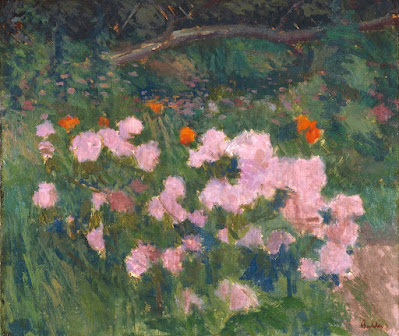 |
| John Armstrong Still Life 1961 oil on canvas Royal Academy of Arts, London |
 |
| Elizabeth Blackadder Vase of Flowers 1976 oil on canvas Royal Academy of Arts, London |
 |
| Frank Brangwyn Sunflowers ca. 1910 oil on board Royal Academy of Arts, London |
 |
| Gerald Brockhurst Fruit Basket: Still Life ca. 1960-70 oil on canvas Royal Academy of Arts, London |
 |
| Robert Buhler Flowers: Chrysanthemum Bush ca. 1970-80 oil on cardboard Royal Academy of Arts, London |
 |
| George Clausen Still Life with Patterned Bowl and Oranges ca. 1920-40 oil on canvas Royal Academy of Arts, London |
 |
| William Gillies Still Life on a Cupboard ca. 1966 oil on canvas Royal Academy of Arts, London |
 |
| Allan Gwynne-Jones Roses, Buttercups and Cow Parsley 1964 oil on board Royal Academy of Arts, London |
 |
| Colin Hayes Interior ca. 1961 oil on canvas Royal Academy of Arts, London |
 |
| Richard MacDonald Autumn Still Life ca. 1956 oil on canvas Royal Academy of Arts, London |
 |
| Charles Mahoney Auriculas in Pots 1956 oil on canvas Royal Academy of Arts, London |
 |
| Philip Matthews Still Life on Striped Cloth 1983 oil on cardboard Royal Academy of Arts, London |
 |
| Dod Procter Autumn Flowers 1946 oil on canvas Royal Academy of Arts, London |
 |
| Leslie Prothero Aquarium ca. 1971 oil on canvas Royal Academy of Arts, London |
 |
| Ruskin Spear Mackerel 1943 oil on paper, mounted on board Royal Academy of Arts, London |
 |
| Jose Suarez Still Life ca. 1970-80 oil on canvas Royal Academy of Arts, London |
Fish or like Fish
He startled to see a statue of blind
justice really did loom over the courtroom. But
remained determined to scorn symbolism.
She needed a quarter to call her lover –
the docket was full, she'd be late for lunch –
and he gave her one. It was not a taunt,
acquiescence, wager, or plea. It was
a quarter. The fact that they had done this –
even this! – together and cordially,
late nights at the dining room table with
a bottle of cabernet, sharp pencils,
A Love Supreme, and an "E-Z Workbook"
from the well-reviewed – the fact that they'd read
reviews! – Don't Pay an Attorney! series,
as if they were learning Portuguese or
origami, was not "as if" or "like"
anything, but just that, a fact, and not
to be pressed for further significance. This
was part of the agreement. They filled out
the forms. Asked lawyer friends for language.
Made stacks of books and towels. Cooked dinner
together, said "excuse me" passing
in the hallway, and even remembered
each other's mother's birthdays. As if. Not
as if. Waiting for their case to be called,
they got hungry. The bailiff pointed toward
the snack bar in the basement, which was packed
with a class trip from the school for the blind.
In illo tempore such a gift would have
caused them to turn to each other in love
and wonder. Now, no. They didn't even
look to see. She asked for fish sticks, and he
wondered if fish sticks were fish or like fish.
The children chewed their chicken fingers
with calm deliberation, staring out at what
they saw, then conveyed their limp paper plates
with startling grace to the hinged swinging mouths
of the trash cans which swallowed everything
offered saying THANK YOU THANK YOU.
– Joel Brouwer (2005)